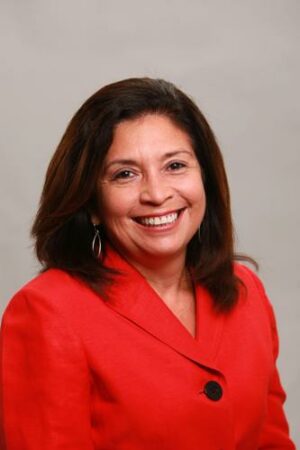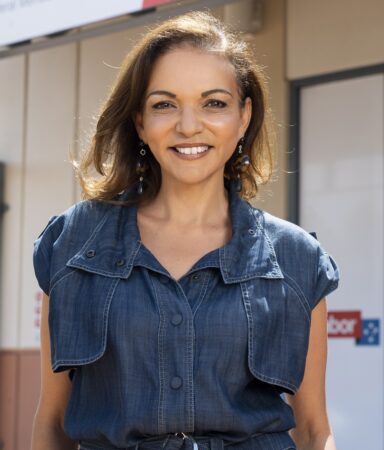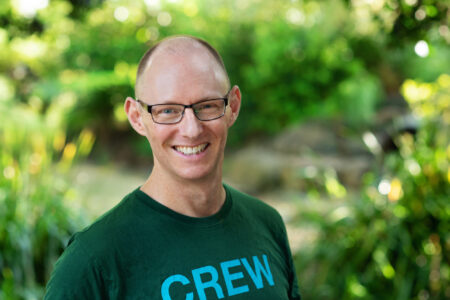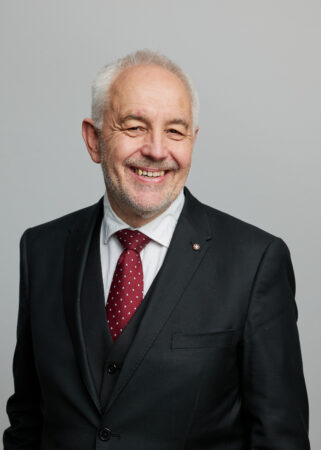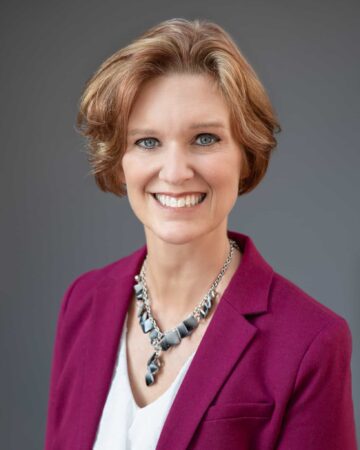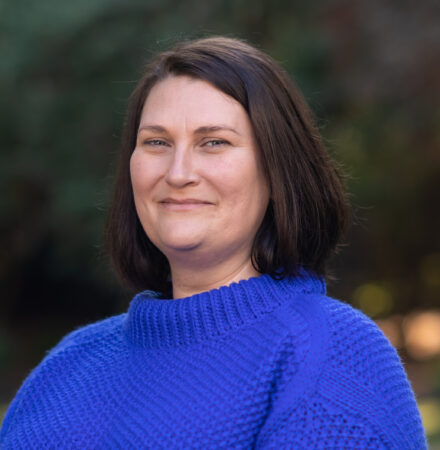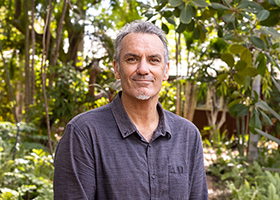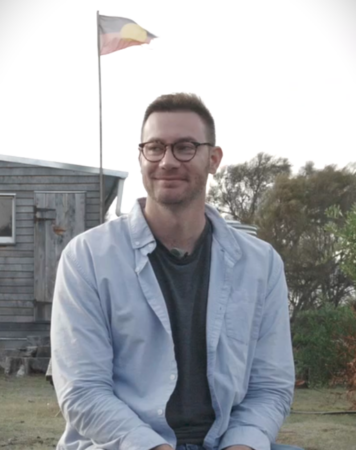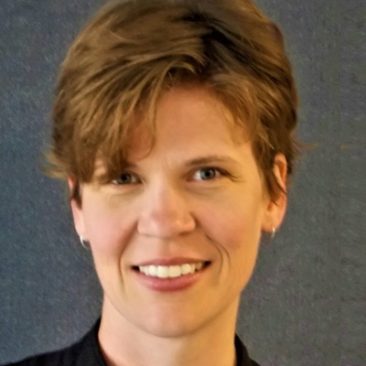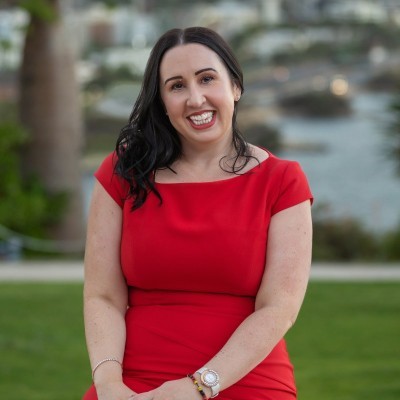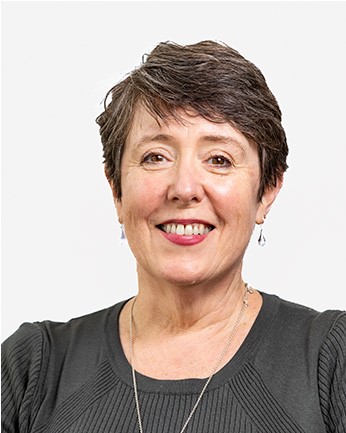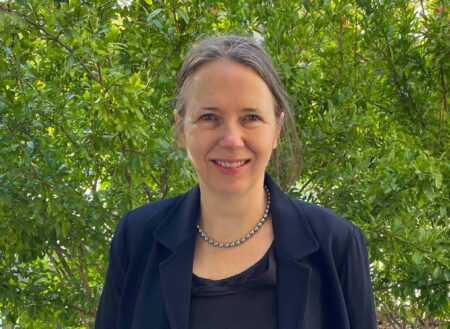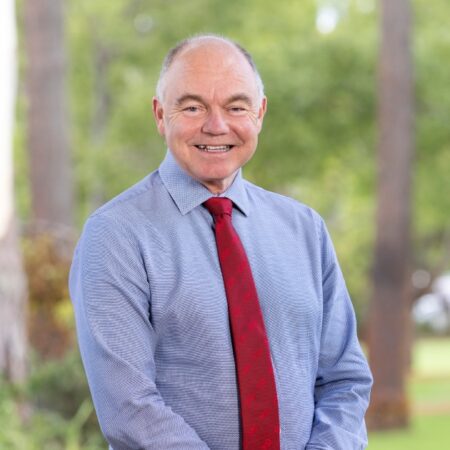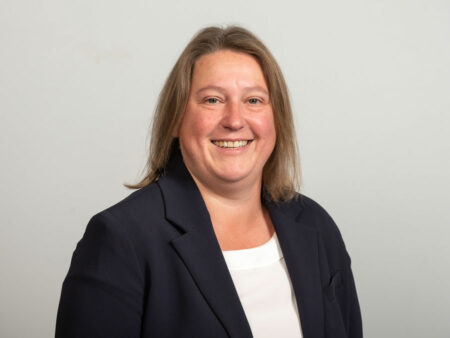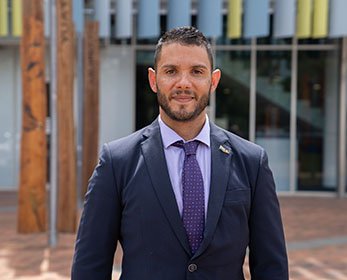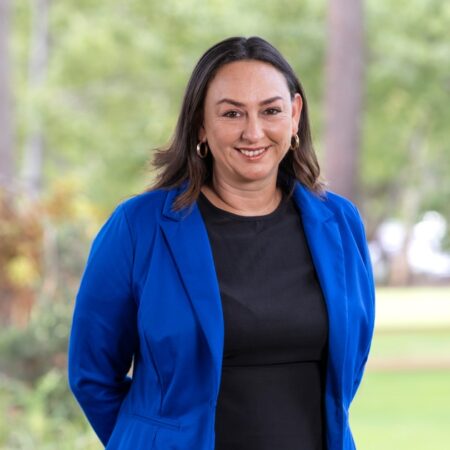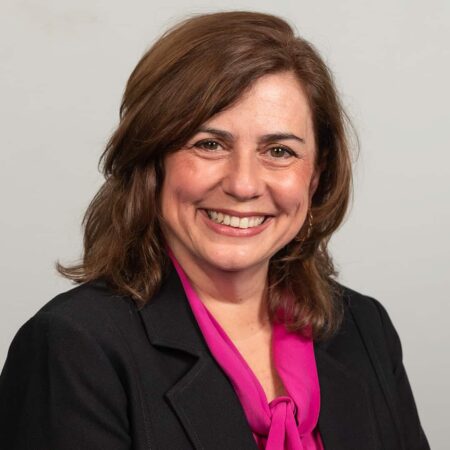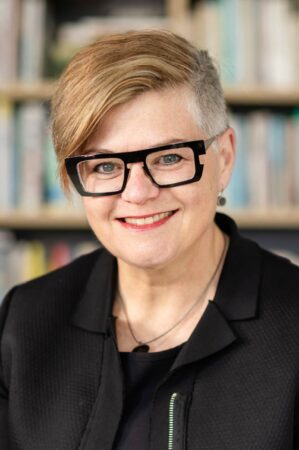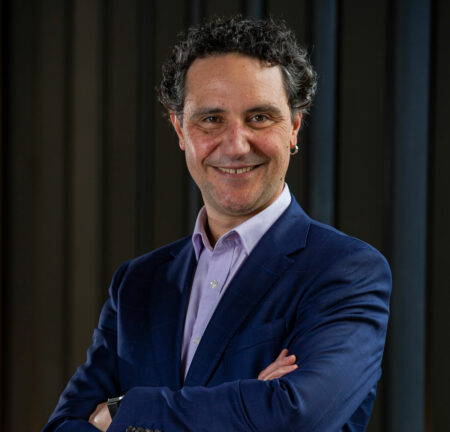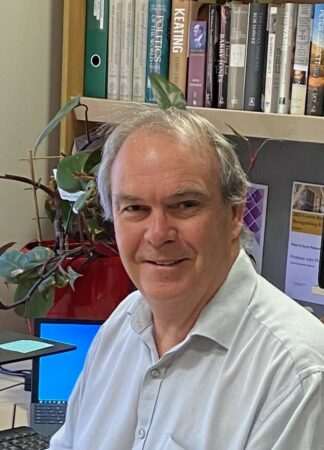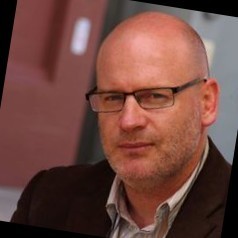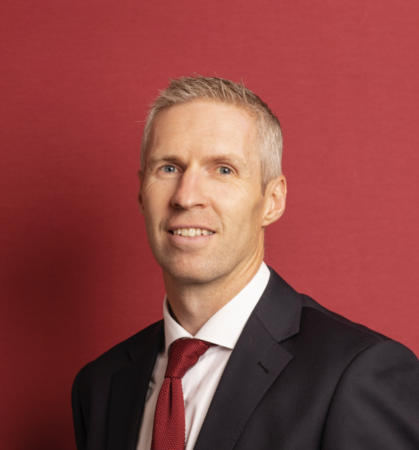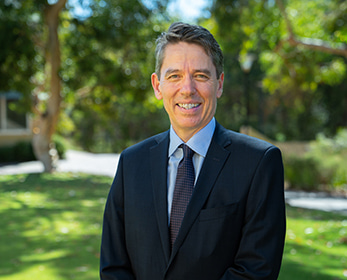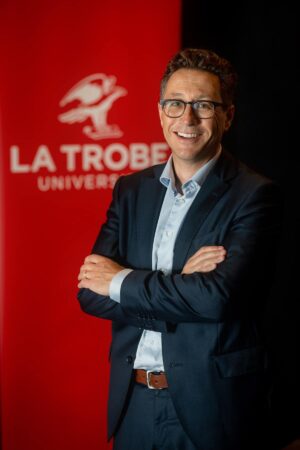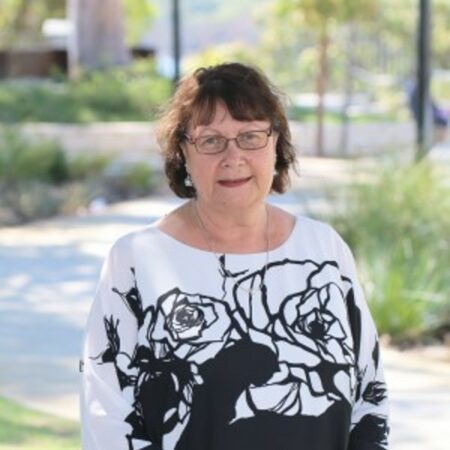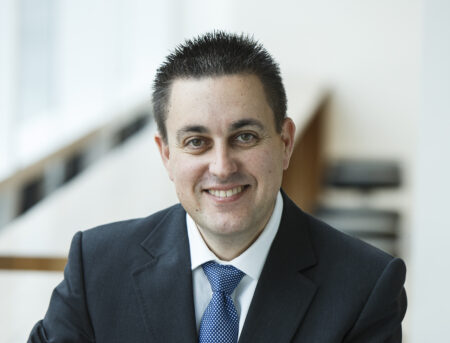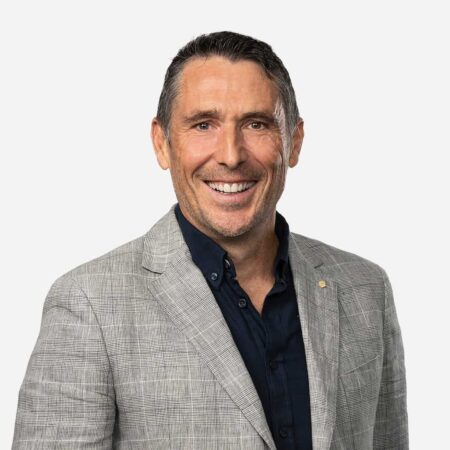Conference Overview
Leading change and achieving impact
At the 2023 DASSH Conference, we brought together leaders and those who speak effectively to power. Conference attendees had the opportunity to make representations to government and government agencies as well as to hear from people who have brought about change and action. Attendees also learned how to turn their ideas and research into impactful outcomes.
Highlights
- David Ritter considered how DASSH and other leaders of our disciplines can achieve influence by drawing on the strategies, insights, and lessons of change-agents such as Greenpeace.
- Alec Coles OBE FRSA, Dr Kristiann Allen and Prof John Phillimore shared their experiences engaging with government and outlined some of the strategies that our disciplines can adopt in developing effective relationships with government.
- Dr Jacob Prehn and Jenny Fewster provided an overview of work being done in regards to Indigenous Data Sovereignty, including the establishment of the Governance of Indigenous Data Framework by the Australian Government.
- Amber Cox and Assoc Prof Sarah Midford explored some of the key challenges around being deputy and associate leaders in humanities, arts and social sciences disciplines.
- The Hon Dr Anne Aly challenged us to do a better job of highlighting the significant impact that humanities, arts and social sciences have across so many areas of Australian life.
- Prof Matt McGuire, Prof Rhonda Marriott AM and Tom Goerke discussed the role that universities play in driving the knowledge economy and also touched on the importance of interdisciplinarity.
- Prof Braden Hill, Assoc Prof Steve Kinnane and Mandy Downing shared their vision for a university sector that empowers First Nations communities and enriches the global academic landscape with diverse perspectives.
- Prof Dolores Guerrero shared her experience of the challenges facing humanities, arts and social sciences in the United States while Assoc Prof Sarah Midford outlined current findings on the experiences of early and mid-career academics in our disciplines.
- Prof James Arvanitakis provided an overview of the research being undertaken at the Forrest Research Foundation and spoke about the value that can be brought from HASS and STEM disciplines working together.
- Prof Christina Twomey, Prof Anika Gauja and Prof Alison Ross outlined how the humanities, arts and social sciences can position themselves for successful relationships with the Australian Research Council and its important grant programs.
- In addition to the wide array of speakers from around Australia and the world, we held the Network of Associate and Deputy Deans program as well as the Annual Deans’ Gathering and the DASSH Annual General Meeting.
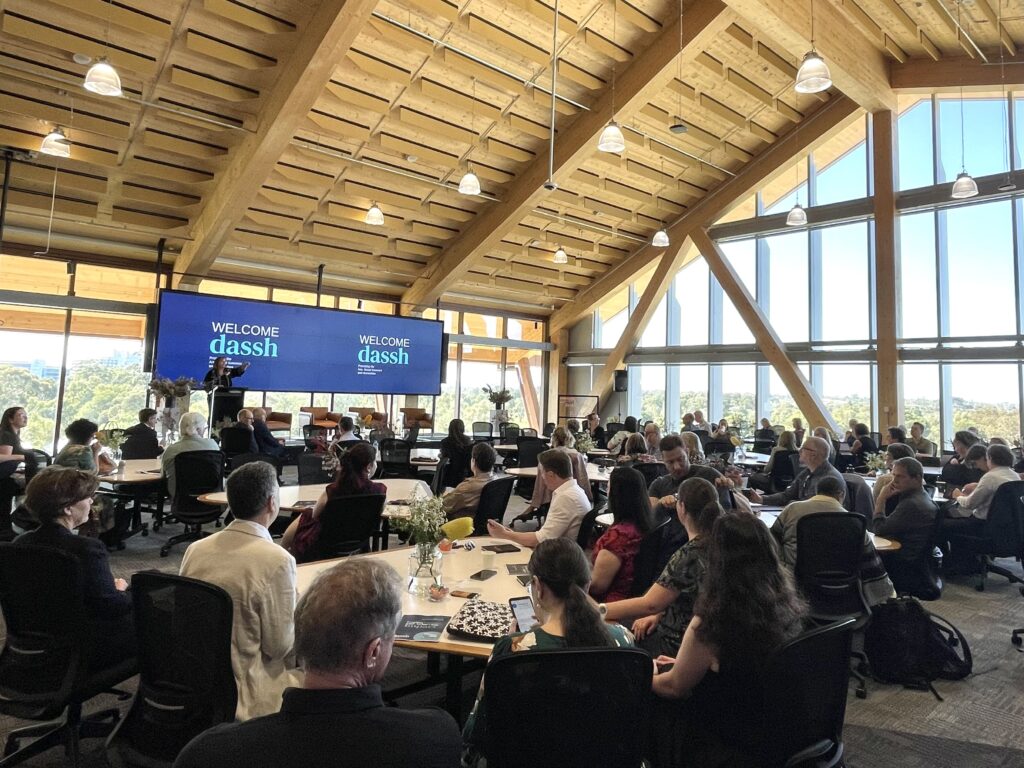
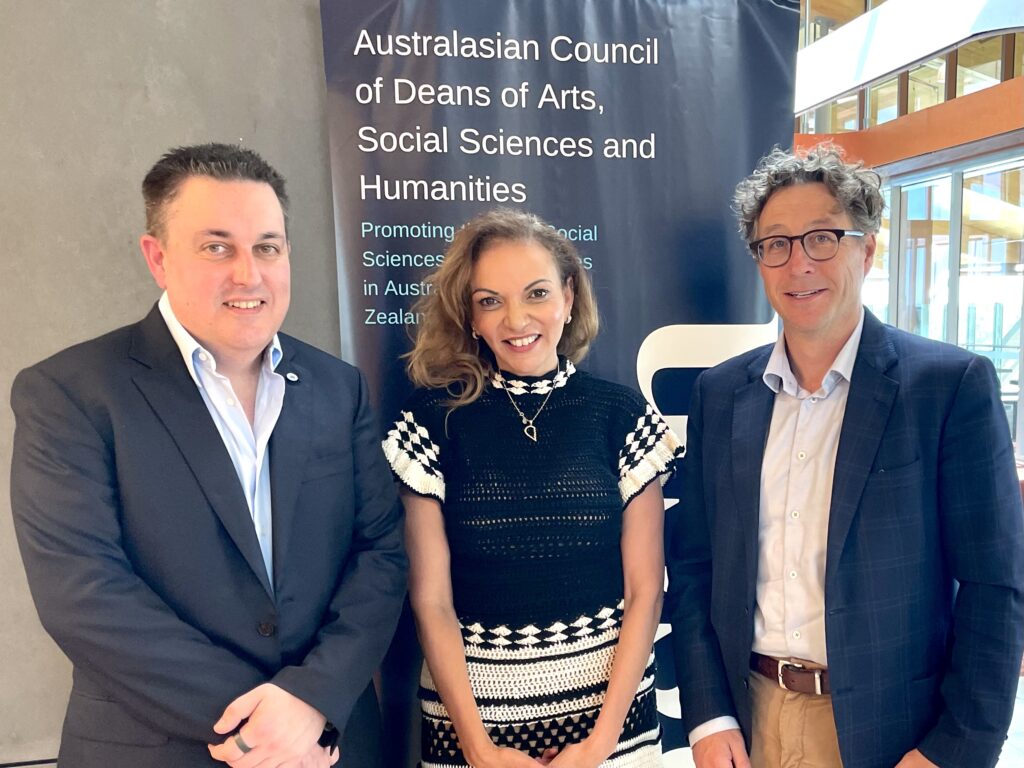
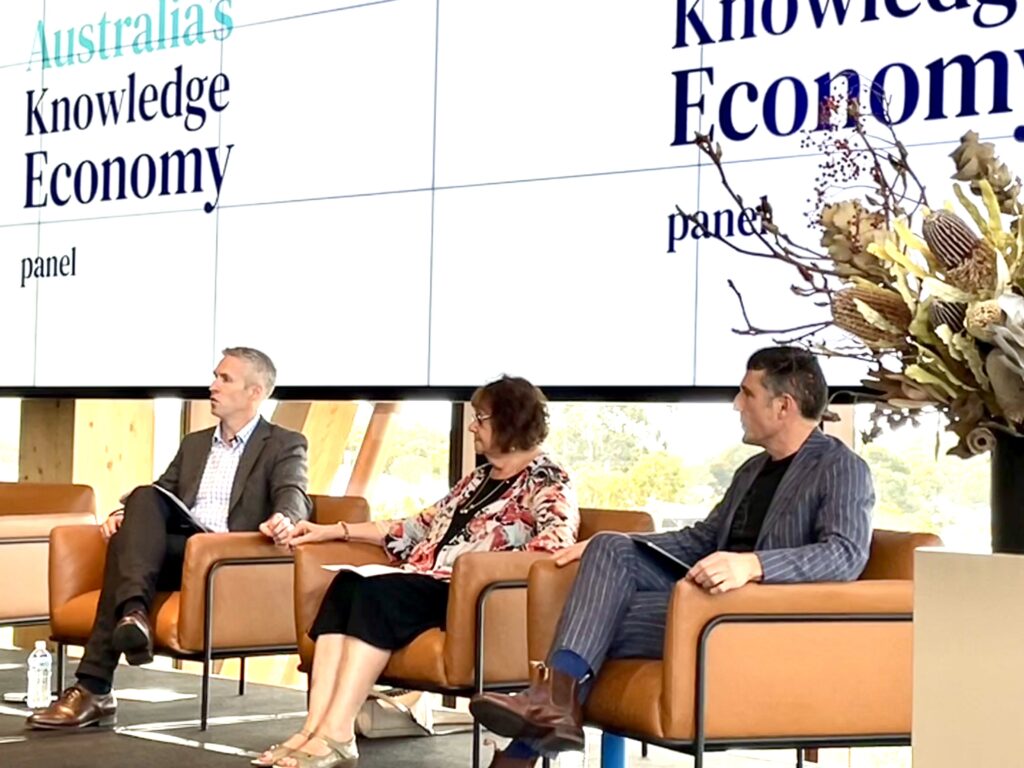
Speakers and Facilitators
Associate Professor Steve Kinnane
Co-Chair of Indigenous Studies, Nulungu Research Centre, University of Notre Dame Australia
Dr Kristiann Allen
Associate Director, Policy and International Engagement, The Centre for Informed Futures, University of Auckland
Ms Jenny Fewster
Director, HASS and Indigenous Research Data Commons, Australian Research Data Commons
Professor Alison Ross
Executive Director, Humanities and Creative Arts, Australian Research Council
Professor Anika Gauja
Executive Director for the Social, Behavioural and Economic Sciences, Australian Research Council
Professor Braden Hill
Deputy Vice-Chancellor (Students, Equity and Indigenous), Edith Cowan University
Professor Chanelle van den Berg
Pro Vice Chancellor (First Nations), Murdoch University
Professor Martin Drum
Executive Dean and Professor, University of Notre Dame Australia
Professor Rhonda Marriott AM
Pro Vice Chancellor, Ngangk Yira Institute for Change, Murdoch University
Program
Day 1
Venue
Boola Katitjin
Building 360: Level 4, Room 3
Murdoch University
Schedule
| 8:30am | REGISTRATIONS |
| 9:00am | WELCOME AND ACKNOWLEDGMENT OF COUNTRY Prof Andrew Deeks, Vice Chancellor, Murdoch University |
| 9:30am | KEYNOTE On Advocacy…Being Change Leaders and Achieving Impact David Ritter knows a thing or two about achieving impact and leading change. As the CEO of Greenpeace Australia Pacific, David is a leading international advocate for environmental and human security. He was previously a lecturer in History and Law at The University of Western Australia and a legal officer for the Yamatji Marlpa Land and Sea Council, becoming one of Australia’s leading commenters on native title. This important keynote address considers how DASSH and other leaders of our disciplines can achieve influence by drawing on the strategies, insights, and lessons of change-agents such as Greenpeace. David will share how the organisation has influenced policy change, corporate practice and public perception through ethical leadership, targeted and creative messaging, and the communication of an urgent vision. His message will suggest how our organisation can do the same. David Ritter, CEO, Greenpeace Australia Pacific Chair: Prof Nick Bisley, President, DASSH, Dean of Humanities and Social Sciences, La Trobe University |
| 10:30am | MORNING TEA |
| 11:00am | PANEL Engaging Government Effectively This engaging session will ask the provocative question: what does government seek from universities, and especially from the Humanities and Social Sciences? With this in mind, we’ll draw on expert professional advice to consider how we can engage government, industry and other disciplines most effectively. Our three eminent speakers include: Alec Coles OBE FRSA, CEO, Western Australian Museum Dr Kristiann Allen, Associate Director, Policy and International Engagement, The Centre for Informed Futures, University of Auckland Prof John Phillimore, Executive Director, John Curtin Institute of Public Policy, Curtin University Chair: Prof Martin Drum, Executive Dean of Arts, Sciences, Law and Business, University of Notre Dame Australia |
| 12:30pm | LUNCH |
| 1:30pm | DEANS’ MEETING AND DASSH AGM Including Afternoon Tea The Deans’ meeting is one of the most valuable opportunities of the annual DASSH conference—a chance to identify the most pressing issues faced by the Humanities and Social Sciences in Australian and New Zealand universities. Working together we will consider meaningful strategies to address key challenges, build powerful networks, support colleagues and establish priorities for DASSH advocacy in 2023-2024. This session will be followed by the Annual General Meeting (AGM). NOADD MEETING Session 1 – Governance of Indigenous Data Framework The global Indigenous Data Sovereignty (IDSov) movement focuses on upholding the rights of Indigenous communities in terms of ownership, control, access, and possession of their data. This concept is put into action through the implementation of Indigenous Data Governance (IDGov). As a response to this, the Australian Public Service has introduced the Governance of Indigenous Data Framework, which spans all sixteen federal government departments. This marks a crucial first step by the Federal Government in assisting Aboriginal and Torres Strait Islander people in realising IDSov. This session provides a comprehensive overview of the development of the federal government framework, along with its four core guidelines. Additionally, it delves into other significant endeavours within this domain. Dr Jacob Prehn, Associate Dean Indigenous, College of Arts, Law, and Education, University of Tasmania Jenny Fewster, HASS and Indigenous Research Data Commons Director, Australian Research Data Commons Session 2 – Up and downs: On being a good Associate or Deputy Dean, Chair or Head of School This practical session explores some key challenges around being deputy or associate leaders in HASS Faculty. In particular, the session explores the following questions: · How should Universities and their communities nurture future leaders? · How are the deputy, associate, and heads of School/department leadership roles changing? · What is good leadership? Both international and national perspectives will be offered by speakers and the audience. Amber Cox, Executive Director, Council of Colleges of Fine Arts (US) Assoc Prof Sarah Midford, Associate Dean (Learning and Teaching), La Trobe University Chair: Prof Andrea Rizzi, Convenor, NOADD, Associate Dean Research, Faculty of Arts, The University of Melbourne |
| 4:30 – 6:00pm | RECEPTION Sir Walter’s Restaurant, tree-lined balcony Building 425 (ground floor) Including a lounge jazz performance from WAAPA (ECU) musicians, Arvis Mena Lescay, Vincent Choy and Flavio Colonetti. |
| 6:00pm | COACH TRANSFER TO FREMANTLE Carpark 3, north-east corner of Bush Court (next to Building 330) This one-way transfer to Fremantle will drop guests near the Esplanade Park, ready to grab dinner in one of Fremantle’s vibrant food precincts. See our eating out recommendations on the next page. |
| 6:30 – 8:30pm | NOADD CASUAL DINNER Members and friends of the Associate Deans network are invited to gather for a casual dinner at the Norfolk Hotel, 47 South Tce, Fremantle. |
Day 2
Venue
Boola Katitjin
Building 360: Level 4, Room 3
Murdoch University
Schedule
| 8:30am | REGISTRATIONS |
| 9:30am | KEYNOTE Blue Skies and Impact: Universities and Young Australians In the age of the Accord, how can universities walk with young people to help them achieve extraordinary things? What do young change-makers and future leaders need from higher education in order to achieve lasting impact? Dr Anne Aly was, herself, a young change-maker. As a single mother in her 20s, Dr Aly raised two young boys and transformed her family’s future through education. Completing a PhD at Edith Cowan University, Dr Aly became a leading academic and practitioner in counter terrorism. In 2015 she was the only Australian to speak at President Obama’s White House summit on countering violent extremism. She entered federal parliament in 2016 as the Member for Cowan. In 2021 she was awarded the McKinnon Prize for Emerging Political Leader of the Year, in recognition of her Parliamentary work against both right-wing extremism and family & domestic violence. Dr Aly is now the Federal Minister for Early Childhood Education and Minister for Youth. In this important address to DASSH members, she will consider how universities can impact our future through the shaping of our youth. Hon Dr Anne Aly, Federal Minister for Early Childhood Education and Minister for Youth Chair: Prof Richard Holden, President, Academy of the Social Sciences in Australia |
| 10:30am | MORNING TEA |
| 11:00am | PANEL Australia’s Knowledge Economy For nations such as Australia and New Zealand, the future hinges on a robust knowledge economy, wherein intellectual capital drives innovation, economic growth, social progress and human security. Universities should play a pivotal role in shaping this vision by fostering a culture of research, critical thinking, and knowledge creation. Through cutting-edge research and education, universities produce a skilled workforce equipped to tackle complex challenges across industries. Additionally, universities can engage in a transfer of ideas and skills that will drive our knowledge economies—but only if we are truly future-facing organisations. In this provocative session, innovative thought-leaders from technology, health, commerce and education will consider how universities can rise to this challenge. Prof Matt McGuire, Dean of Humanities, Communications and Arts, Western Sydney University Prof Rhonda Marriott, Pro Vice Chancellor, Ngangk Yira Institute for Change, Murdoch University Tom Goerke, Trestle Digital and Curtin University Chair: Prof Matt McGuire, Western Sydney University |
| 12:30pm | LUNCH |
| 1:30pm | PANEL First-Nations Futures In ideal universities of the future, First Nations peoples will thrive as integral contributors to the academy. Indigenous students will experience a supportive and culturally inclusive learning environment, undertaking programs that respect their heritage and aspirations. Aboriginal academics will play a vital role in shaping curriculum and research across all disciplines, offering unique perspectives and insights. Through meaningful collaborations and knowledge-sharing, universities will bridge the gap between Indigenous and Western knowledge systems, empowering First Nations communities and enriching the global academic landscape with diverse perspectives. In this thoughtful session, leading Indigenous academics will share their vision for First Nations’ futures that will both inspire and challenge us all. Prof Braden Hill, Deputy Vice-Chancellor (Students, Equity and Indigenous), Edith Cowan University Assoc Prof Steve Kinnane, Co-Chair of Indigenous Studies, Nulungu Research Centre, University of Notre Dame Australia Mandy Downing, Dean of Indigenous Futures, Curtin University Chair: Assoc Prof Chanelle van den Berg, Pro Vice Chancellor (First Nations), Murdoch University |
| 3:00pm | AFTERNOON TEA |
| 3:30 – 5:00pm | WORKSHOP Building future leaders One of the challenges of leadership is finding the time to look beyond the immediate pressures to see what’s coming next. This panel brings together local and international experience to consider how we can prepare for our futures, and how to prepare our future leaders. Sarah Midford will reveal current findings on the working experiences of early and mid-career academics in our disciplines. Dolores Guerrero will share her experience of the challenges facing humanities, arts and social sciences in the United States. Together, we will discuss the challenges and opportunities that may be headed our way. Dr Dolores Guerrero, President, Council of Colleges of Arts and Sciences (US) Assoc Prof Sarah Midford, Associate Dean (Learning and Teaching), La Trobe University Chair: Prof Heather Zwicker, Executive Dean of Humanities and Social Sciences, University of Queensland |
| 5:30pm | Chartered Bus to Matilda Bay Restaurant |
| 6:00 – 9:30pm | CONFERENCE DINNER Matilda Bay Restaurant 3 Hackett Drive, Crawley WA 6009 Join us for a special, riverside dinner in one of Perth’s premier waterfront dining venues. Matilda Bay is a favoured venue for special events, priding itself on outstanding food experiences. Nestled between the waters of the Swan River (Derbal Yerrigan) and The University of Western Australia, Matilda Bay is rich in history. The restaurant overlooks the waters known to Noongar people as Godroo or Goodamiorup. It sits on waterfront land south of what were once Noongar camping grounds, and north of Goordandalup, the meeting place of betrothed couples. In the Twentieth Century, Matilda Bay was the site of Perth’s first international airport—a convenient landing zone for Catalina flying boats. In the 1940s it was the location for an air base used by the RAAF and the US and Dutch navies, as well as by Qantas for international flights from Ceylon—then the world’s longest air route. The restaurant was designed by the architect, John White, in 1968. |
Day 3
Venue
Boola Katitjin
Building 360: Level 4, Room 3 Murdoch University
Schedule
| 8:30am | REGISTRATIONS |
| 8:45am | BOARD MEETING (for board members) |
| 9:30am | PLENARY Industry, HASS and Research While STEM is often the focus of industry engagement, much research, innovation and impact is driven by the intersection of the HASS disciplines. Industry benefits in many ways from HASS research insight, which informs strategic decision-making about human behaviour, social needs, and wicked problems. Simultaneously, HASS disciplines and researchers are enriched through practical application when engaging with industry projects. This dynamic intersection fosters a mutually beneficial relationship, where cutting-edge research informs industry practices, and industry engagement empowers HASS disciplines to address contemporary challenges effectively. In this important discussion, James Arvanitakis, Director of the Forrest Research Foundation, opens Friday’s research forum by considering key initiatives our disciplines can take to advance industry partnerships and linkages. Prof James Arvanitakis, Director, Forrest Research Foundation Chair: Prof Matthew Allen, Executive Dean, Arts and Humanities, Edith Cowan University |
| 10:00am | TOWN HALL Myth busting: HASS and the future of ARC-funded research Including Morning Tea Following the ‘call to arms’ issued by James Arvanitakis in the preceding session, the ARC’s newly appointed Chief Research Officer, Prof Christina Twomey, will consider how the HASS disciplines and DASSH members can position themselves for successful relationships with the ARC and its important Linkage grants. Prof Christina Twomey, Chief Research Officer, Australian Research Council Prof Anika Gauja, Executive Director for the Social, Behavioural and Economic Sciences, Australian Research Council Prof Alison Ross, Executive Director, Humanities and Creative Arts, Australian Research Council Chair: Prof Matthew Allen, Executive Dean, Arts and Humanities, Edith Cowan University |
| 11:30am | CONFERENCE CONCLUSIONS Prof Nick Bisley, President, DASSH, Dean of Humanities and Social Sciences, La Trobe University |
| 12:00pm | CONFERENCE ENDS |

